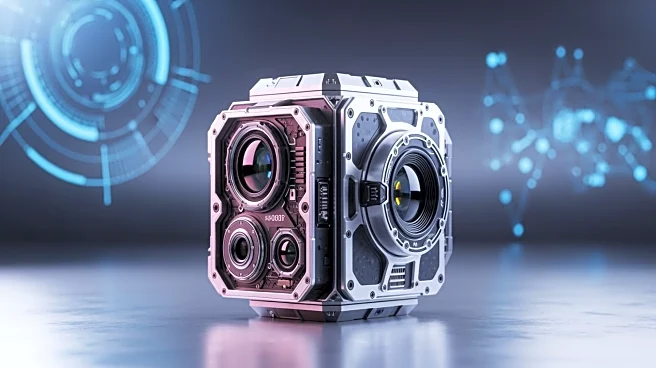What's Happening?
Reventec has introduced the LSM200-IP69K, a rugged coolant level sensor designed specifically for defense UAV systems. This sensor is constructed from hard-anodized aluminum and is certified to IP69K standards, ensuring it can withstand extreme thermal,
mechanical, and fluid exposure conditions. The LSM200-IP69K features a solid-state architecture, eliminating moving components to maintain stable accuracy even in non-vertical or inverted orientations. It is equipped with a compact 2-bolt mounting system and integrated electronics, providing analog (0–5 VDC), CAN, or combined outputs without the need for external processing. The sensor supports continuous real-time coolant monitoring across a wide temperature range, from -40°C to +125°C, with extended variants rated up to +150°C. It is resilient to shock, vibration, and differential tank pressures up to 2 bar, with optional support for up to 10 bar, ensuring reliable performance in defense UAV systems.
Why It's Important?
The development of the LSM200-IP69K sensor is significant for the defense industry, particularly in enhancing the operational capabilities of UAV systems. By providing reliable and accurate coolant level monitoring, this sensor contributes to mission endurance and system health monitoring, which are critical for defense applications. Its compatibility with various fuel, oil, and coolant formulations, including military-grade specifications, ensures it can be integrated into airworthy platforms. The sensor's compliance with MIL-STD-461G and RTCA DO-160F EMC standards further confirms its readiness for military use, potentially improving the efficiency and safety of UAV operations in challenging environments.
What's Next?
As Reventec continues to innovate in sensor technology, the LSM200-IP69K may see increased adoption in defense UAV systems, enhancing their reliability and performance. The sensor's robust design and compatibility with military standards suggest it could become a standard component in future UAV developments. Stakeholders in the defense industry may explore further integration of such sensors to improve system monitoring and operational capabilities, potentially leading to advancements in UAV technology and applications.
Beyond the Headlines
The introduction of the LSM200-IP69K sensor highlights the ongoing advancements in unmanned systems technology, particularly in the defense sector. This development may prompt further research and innovation in sensor technology, focusing on enhancing the durability and accuracy of components used in extreme conditions. Additionally, the sensor's design and functionality could influence future standards for UAV systems, emphasizing the importance of reliable monitoring solutions in military applications.

















